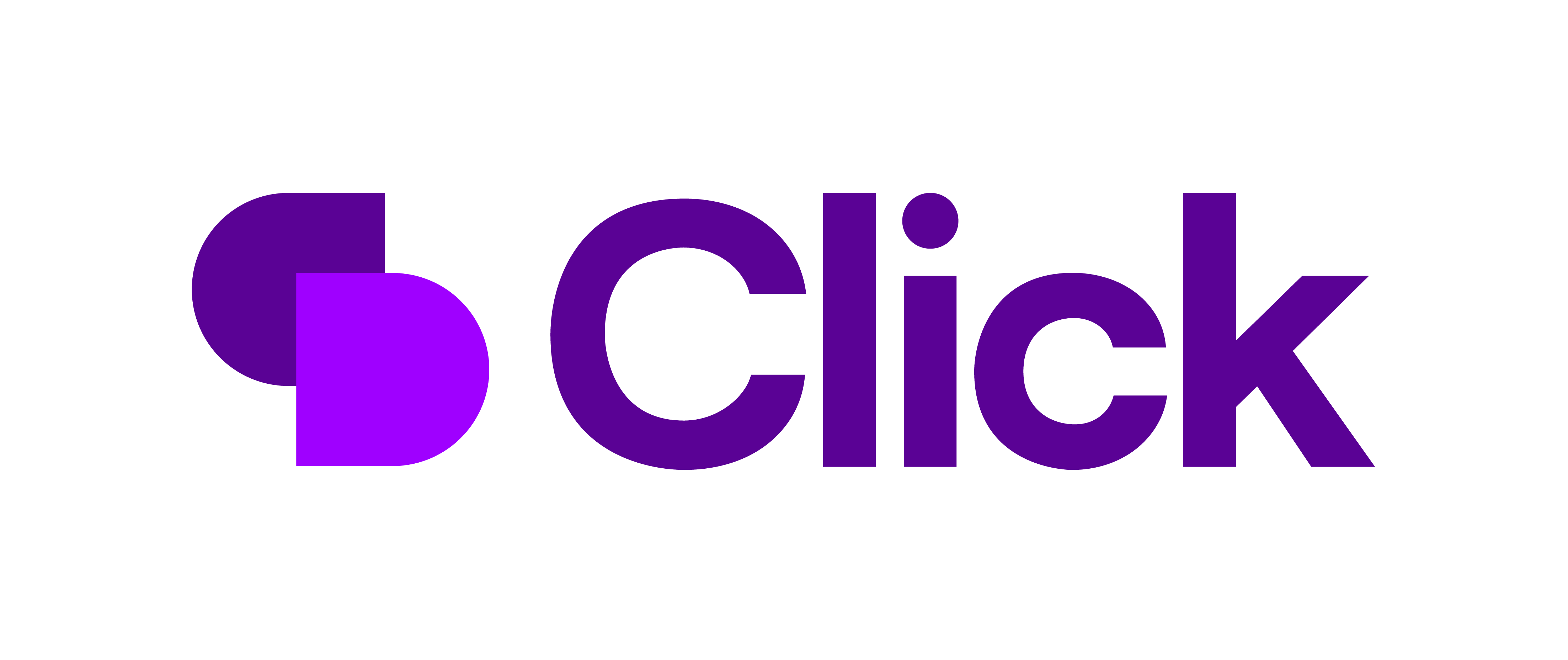Since the global ‘you know what’ of a few years ago (which I won’t be mentioning by the way), the pace of change businesses have had to keep up with has accelerated exponentially, like at no time ever before.
And its digital transformations driving that change, as organisations have either willingly (or been forced to) pivot towards a future in which agility, innovation and efficiency are prioritised.
Running the Support Team for a Microsoft Partner like FormusPro means I’m entrusted with all of our clients’ needs and requirements during and post-implementation (and it’s been a privilege witnessing these transformation journeys firsthand by the way).
In my experience, they all begin the same, with an ambitious vision.
Organisations, driven by a desire to remain competitive and future-proof their operations, embark on the path of digital transformation. They then partner with a technology leader to leverage cutting-edge solutions, using them to redefine their processes, customer experiences and market positions.
These partnerships, all without fail, mark the commencement of a profound change that touches every aspect of their business.
But here’s where the story truly begins (at least as far as I’m involved).
The successful implementation of the Microsoft stack will mark the end of one chapter and the beginning of another, equally crucial one.
And it’s in this transition point where our role as support leaders need to take centre stage. In a world that expects remote support on demand, it’s vital we ensure the seamless and effective operation of the solutions we’ve implemented.
The mission is clear: to empower our clients to extract the maximum value from their investments in Microsoft technology.
It’s a task that requires a delicate balance of technical expertise, proactive service and a deep understanding of our clients’ unique needs and challenges. The role transcends traditional support; it’s actually more about forging long-lasting partnerships that empower continuous improvement and innovation.
Through the years, I’ve learnt that the post-implementation phase is where the real journey begins for our clients.
They’ll face new challenges, explore untapped opportunities and be able to continually adapt to an ever-shifting marketplace.
Running their support, I see it as our duty to be by their side, providing the guidance, solutions and support required to navigate this evolving landscape successfully.
Building A Strong Foundation
In the last few years, remote work has emerged not just as a response to a global crisis, but as a fundamental shift in how we operate, do business and treat staff.
It’s essential to recognise that the remote work trend isn’t going to be a passing phase; it’s a new paradigm that’s very much here to stay.
Remote Work Isn’t Going Anywhere
The you-know-what-19 pandemic firmly catapulted remote work into the spotlight, forcing organisations of all stripes and sizes to rapidly adapt and adopt digital solutions to have any hope of maintaining business continuity.
Whilst the initial shift may have been reactionary, it quickly became evident that remote work offers huge advantages, both client side and for staff.
It grants employees greater flexibility, allows companies to tap into a global talent pool and often leads to increased productivity and availability.
However, I think its long-term viability is going to extend far past the pandemic.
Many organisations have embraced remote work as a strategic choice and employees now expect a degree of flexibility in their work arrangements.
This reality presents both opportunities and challenges for support teams. To adapt and thrive in such a landscape, support teams need to:
- Embrace Digital Collaboration Tools: Invest in and leverage the latest digital collaboration tools and technologies to ensure effective communication and collaboration among remote team members. Microsoft’s suite of productivity tools, such as Microsoft Teams, SharePoint, and OneDrive, can serve as invaluable assets in this endeavour.
- Focus On Outcome-Based Management: Shift the management focus from tracking hours to measuring outcomes. Remote work allows team members to work in environments that suit them best, which can lead to increased efficiency. Emphasise clear performance expectations and goals while granting team members the autonomy to manage their own work and schedules.
- Prioritise Cybersecurity: With remote work comes an increased risk of cybersecurity threats. Ensure that your team is well-versed in cybersecurity best practices and that your organisation has robust security measures in place to protect sensitive data.
Hiring For Remote Success
Recruiting and onboarding team members who excel in remote support roles is an art that demands precision and adaptability.
Remote work requires a unique skill and mindset, making the hiring process critical to building a strong support foundation.
To hire for remote success, I’d suggest:
- Identifying Remote-Friendly Traits: Look for candidates who exhibit traits conducive to remote work, such as self-discipline, effective communication skills and the ability to work independently. Experience with remote work or a remote-friendly attitude is obviously also a plus.
- Conduct Virtual Interviews: Conduct virtual interviews to assess candidates’ comfort and proficiency with remote communication tools. Pay attention to their responsiveness and engagement during the interview process as indicators of their suitability for remote work.
- Provide Robust Onboarding: Develop a comprehensive remote onboarding program that introduces new team members to your organisation’s culture, processes, and technology stack. Assign mentors or buddies to help newcomers acclimate to the remote environment.
- Emphasise Continuous Learning: Remote support roles often involve working with cutting-edge technology. Encourage a culture of continuous learning and provide opportunities for professional development to keep your team members and clients up to date with the latest Microsoft solutions.
By understanding that remote work is here to stay and by adapting your hiring processes accordingly, you can build a robust foundation for your remote support team. In doing so, you’re not only prepared for the present but also poised to thrive in the future of work
Navigating The Remote Work Environment
You can’t think of the ability to navigate the remote work environment as a luxury anymore… It’s become a necessity. As the Head of Support for a Microsoft Partner, you understand that this environment demands a new level of adaptability and innovation. Let’s explore two key components for successfully navigating this terrain: communication in a digital world and striking the right balance between autonomy and accountability.
Communication In a Digital World
Communication has always been the lifeblood of any successful team, but with remote work, it takes on even greater importance.
Effective communication is the linchpin that keeps remote teams connected, informed, engaged and productive.
Here are the key communication tools and strategies that I’ve found achieve this:
- Leveraging Collaboration Tools: Microsoft offers a suite of powerful collaboration tools, such as Microsoft Teams, that facilitate real-time communication, file sharing, and collaboration. Ensure your team is well-versed in these tools to maximize their effectiveness.
- Establishing Clear Communication Protocols: Define clear communication protocols within your team. This includes guidelines on how and when to use different communication channels, ensuring that important information doesn’t get lost in the digital noise.
- Encouraging Regular Check-Ins: Promote regular check-ins, both one-on-one and team-wide, to foster a sense of connection and keep everyone aligned. Schedule virtual meetings, stand-ups or informal chats to maintain open lines of communication.
- Embracing Transparency: Transparency builds trust. Keep your team informed about organisational updates, project progress and changes in strategy. Transparent communication reduces uncertainty and helps remote team members feel more connected to the larger mission.
Balancing Autonomy and Accountability
One of the remarkable aspects of remote work is the freedom it provides to team members to structure their workdays according to their preferences.
However, maintaining a balance between autonomy and accountability is essential to ensure productivity and cohesion within your remote support team. Here’s how I do it:
- Setting Clear Expectations – Establish clear performance expectations and goals for each team member. Ensure that they understand their responsibilities and how their work contributes to the team’s overall success.
- Empowering Decision-Making: Empower your team members to make decisions within their areas of expertise. Encourage problem-solving and creativity. Remote work often fosters innovation when team members are granted the autonomy to explore new solutions.
- Implementing Regular Check-Ins: Regular check-ins not only facilitate communication but also provide opportunities for accountability. Use these meetings to review progress, address challenges, and offer guidance.
- Utilising Productivity Tools: Leverage productivity tools and project management software to track progress, manage tasks, and ensure accountability. Microsoft offers solutions like Microsoft Planner and Azure DevOps that can help streamline workflow and task management.
- Recognising Achievements: Acknowledge and celebrate achievements, both big and small. Recognising and rewarding accomplishments boosts morale and reinforces a sense of accountability.
By prioritising effective communication and striking a balance between autonomy and accountability, you’re well-equipped to navigate the remote work environment. These strategies not only keep your team connected and productive, but also empower them to thrive in the evolving landscape of digital transformation support.
Further reading
About FormusPro
Behind The Scenes @ FormusPro As A Support Manager
Best Practice For Microsoft D365 CE Implementations
Tools and Technology
As should be clear by now, the right tools and technology will make all the difference.
Over the years, I’ve learnt that recognising and leveraging the right software solutions is pivotal to streamlining support operations and enhancing collaboration.
Essential Software for Remote Support Teams
The success of a remote support team hinges on the software solutions at their disposal.
Microsoft, as you’d assume as a technology leader, offers a wide array of tools and software designed to empower remote support teams. Here are some of my must-have software solutions to help streamline support operations and foster collaboration:
- Microsoft Teams: Microsoft Teams is the ultimate hub for teamwork. It combines chat, video conferencing, file storage and application integration into one platform. Your support team can use Teams to conduct virtual meetings, collaborate on documents in real-time, and communicate seamlessly.
- SharePoint: SharePoint is a powerful document management and collaboration platform. It allows your team to share and collaborate on documents, create intranet sites and manage content. It’s an excellent solution for organising and accessing critical support documentation.
- Azure DevOps: For teams involved in software development or IT operations, Azure DevOps provides a comprehensive suite of tools for planning, developing, testing and delivering software. It’s ideal for managing complex projects and ensuring smooth support for digital solutions.
- Power BI: Power BI’s a robust business analytics tool that enables your team to visualise data and share insights. It’s invaluable for monitoring support performance, identifying trends and making data-driven decisions.
- Dynamics 365 Customer Service: For managing customer interactions and support requests, Dynamics 365 Customer Service is a top-tier solution. It helps you streamline customer service processes, track cases and provide exceptional support.
Data-Driven Decision Making
The ability to harness data for decision-making is a game-changer for remote support teams and those that can are quickly outpacing those who can’t.
How to do it though?
- Performance Metrics: Identify key performance metrics for your support team, such as response times, resolution rates and customer satisfaction scores. Analyse this data regularly to identify areas for improvement and measure the impact of your support efforts.
- Predictive Analytics: Use predictive analytics to anticipate support issues and proactively address them. By analysing historical data, you can identify patterns and trends that may indicate potential problems in the future.
- Customer Insights: Analyse customer feedback and behaviour data to gain insights into their needs and preferences. This information can guide your team in tailoring support solutions to meet customer expectations.
- Resource Allocation: Data analytics can help you optimise resource allocation by identifying areas of high demand and allocating team members accordingly. This ensures that you have the right people in the right places to meet customer needs.
- Continuous Improvement: Implement a culture of continuous improvement based on data-driven insights. Regularly review and refine support processes and strategies to enhance efficiency and effectiveness.
By integrating essential software solutions into your remote support operations and harnessing the power of data-driven decision making, you empower support teams to excel in the world of digital transformations.
These tools and insights not only streamline operations but also drive continuous improvement, ensuring that your support team remains agile and responsive to the evolving needs of your clients
Employee Well-Being and Performance
Supporting the well-being and performance of your remote team members is paramount to maintaining a productive and engaged workforce.
If you ever find yourself running a support team, you’ll quickly understand that a healthy, motivated team is the cornerstone of exceptional support.
Prioritising Mental Health
Remote work offers flexibility and convenience, but it also comes with unique challenges, including isolation and increased stress levels.
Prioritising the mental well-being of your remote team members is not just a humane approach; it’s a strategic one. How I tend to do it is:
- Regular Check-Ins: Foster a culture of open communication by scheduling regular one-on-one check-ins with team members. These meetings provide a safe space for discussing challenges, addressing concerns and offering support.
- Encourage Work-Life Balance: Help team members establish clear boundaries between work and personal life. Encourage them to take breaks, use vacation time and disconnect from work when their day is done. Just because their laptop is always nearby, doesn’t mean they’re on-call 24/7.
- Mental Health Resources: Provide access to mental health resources and support. Maybe consider offering employee assistance programs (EAPs) or partnering with mental health professionals who can provide counselling and guidance?
- Team Building Activities: Organise virtual team-building activities to foster a sense of belonging and camaraderie. These activities can help combat feelings of isolation and strengthen team bonds.
- Flexibility: Recognise that flexibility is a key benefit of remote work. Allow team members to adjust their schedules when needed to accommodate personal responsibilities or to manage their workload effectively.
Measuring Performance Remotely
Measuring the performance of a remote support team requires a shift from traditional metrics to more dynamic and outcomes-based evaluation, such as:
- Outcome-Based Metrics: Focus on outcome-based metrics that measure the impact of your support efforts, such as customer satisfaction, issue resolution times, and first-contact resolution rates. These metrics provide a holistic view of performance.
- Quality Assurance: Implement a quality assurance program to review support interactions and ensure that they meet established standards. This can be done through call monitoring, ticket reviews, or customer surveys.
- Performance Dashboards: Leverage performance dashboards and reporting tools to provide real-time visibility into team performance. Microsoft Power BI, for example, can create custom dashboards that display key performance indicators.
- Continuous Feedback: Provide continuous feedback to team members through regular performance reviews and coaching sessions. Use these opportunities to set goals, discuss strengths, and identify areas for improvement.
- Peer Reviews: Encourage peer reviews within the team. Team members can provide valuable insights and feedback on each other’s work, promoting collaboration and self-improvement.
By prioritising mental health and well-being and implementing effective performance measurement strategies for remote teams, you not only nurture a supportive and healthy work environment but also ensure that your support team continues to excel in delivering top-tier service to your clients. These strategies contribute to both the happiness of your team members and the success of your support operations.
Adapt and Learn
Remember that as a manager, you’re an escalated support function for clients but also to your team. Learn to embrace criticism from the team and adapt your management and coaching style as needed.
Try not to focus solely on clients, or your team, but develop a balance of both as they will ultimately complement each other. Humility is a very important part of taking the lead. You are there to serve the needs of all your customers, internal and external.
Customer Service and Client Management
Providing exceptional customer service and nurturing client relationships are the cornerstones of success for any support team, especially in the context of remote work.
Working for a Microsoft Partner, it’s even more imperative that I explore strategies and technologies that enable us to deliver top-tier customer service to clients in a remote setup whilst still maintaining strong relationships.
Delivering Exceptional Customer Service Remotely
Remote work shouldn’t be a barrier to delivering exceptional customer service.
In fact, it presents unique opportunities to provide even more personalised and efficient support. Here are strategies and technologies to ensure you continue to meet and exceed client expectations remotely that I’ve put into practice here at FormusPro:
- Omnichannel Support: Implement an omnichannel support strategy that allows clients to reach your team through their preferred communication channels, be it email, chat, phone, or video conferencing. Microsoft Dynamics 365 provides a unified platform for managing these interactions seamlessly (which has been handy, believe you me!).
- Knowledge Management: Leverage knowledge management systems like Microsoft SharePoint to centralise support documentation, FAQs and best practices. Ensure your team has easy access to up-to-date information to resolve client issues efficiently.
- AI-Powered Chatbots: Explore the use of AI-powered chatbots integrated with Microsoft’s AI platform, Azure AI. These chatbots can provide instant responses to common queries, freeing up your support team to focus on more complex issues.
- Personalised Service: Use Customer Relationship Management (CRM) tools like Microsoft Dynamics 365 Customer Service to gather and analyse client data. This allows you to tailor your support interactions, making clients feel valued and understood.
- Proactive Communication: Implement proactive communication by sending regular updates, tips and relevant news to clients. Show them that you’re actively working to improve their experience and anticipate their needs.
Building Strong Client Relationships from Afar
Maintaining strong client relationships is essential for long-term success, even when working remotely…especially when working remotely in fact.
- Regular Check-Ins: Much like with your team, schedule regular virtual meetings or calls with clients to discuss their evolving needs, challenges and feedback. These interactions demonstrate your commitment to their success.
- Personalised Engagement: Tailor your interactions to each client’s preferences. Some clients may prefer email updates, while others may appreciate a quick video call. Adapt to their communication style.
- Feedback Loops: Establish feedback loops that allow clients to provide input and suggestions for improvement. Act on their feedback to show that you value their insights.
- Transparency and Trust: Foster transparency by keeping clients informed about project progress, challenges, and successes. Building trust is essential in remote client relationships.
- Value-Added Services: Consider offering value-added services, such as training webinars or workshops, to help clients maximise the benefits of their digital transformation solutions.
By implementing these strategies and leveraging Microsoft technologies, you can not only maintain but also strengthen client relationships and continue to deliver exceptional customer service remotely.
The combination of personalised support and proactive engagement will reinforce your reputation as a trusted partner in their digital transformation journey.



